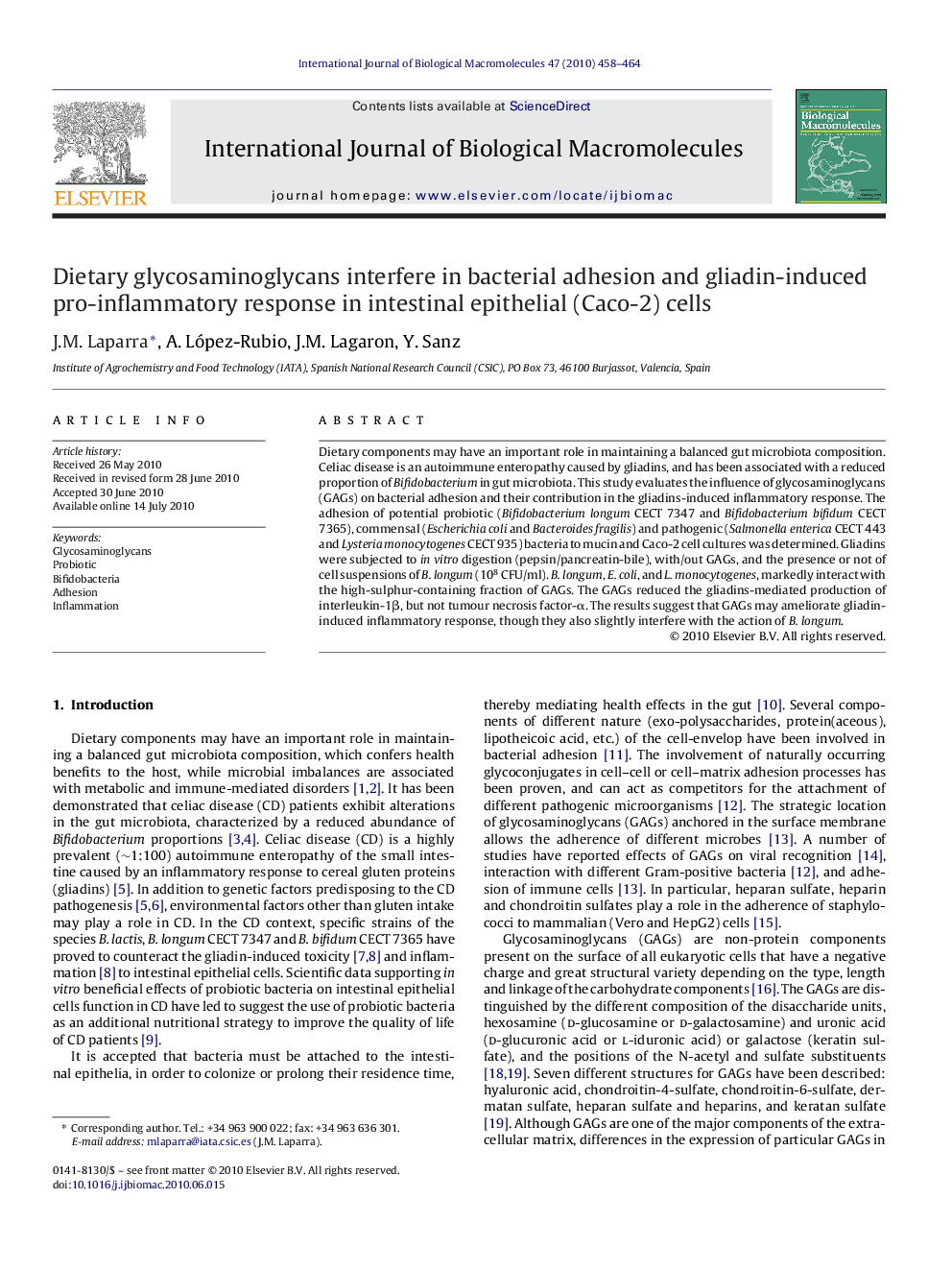| Article ID | Journal | Published Year | Pages | File Type |
|---|---|---|---|---|
| 1987539 | International Journal of Biological Macromolecules | 2010 | 7 Pages |
Dietary components may have an important role in maintaining a balanced gut microbiota composition. Celiac disease is an autoimmune enteropathy caused by gliadins, and has been associated with a reduced proportion of Bifidobacterium in gut microbiota. This study evaluates the influence of glycosaminoglycans (GAGs) on bacterial adhesion and their contribution in the gliadins-induced inflammatory response. The adhesion of potential probiotic (Bifidobacterium longum CECT 7347 and Bifidobacterium bifidum CECT 7365), commensal (Escherichia coli and Bacteroides fragilis) and pathogenic (Salmonella enterica CECT 443 and Lysteria monocytogenes CECT 935) bacteria to mucin and Caco-2 cell cultures was determined. Gliadins were subjected to in vitro digestion (pepsin/pancreatin-bile), with/out GAGs, and the presence or not of cell suspensions of B. longum (108 CFU/ml). B. longum, E. coli, and L. monocytogenes, markedly interact with the high-sulphur-containing fraction of GAGs. The GAGs reduced the gliadins-mediated production of interleukin-1β, but not tumour necrosis factor-α. The results suggest that GAGs may ameliorate gliadin-induced inflammatory response, though they also slightly interfere with the action of B. longum.
